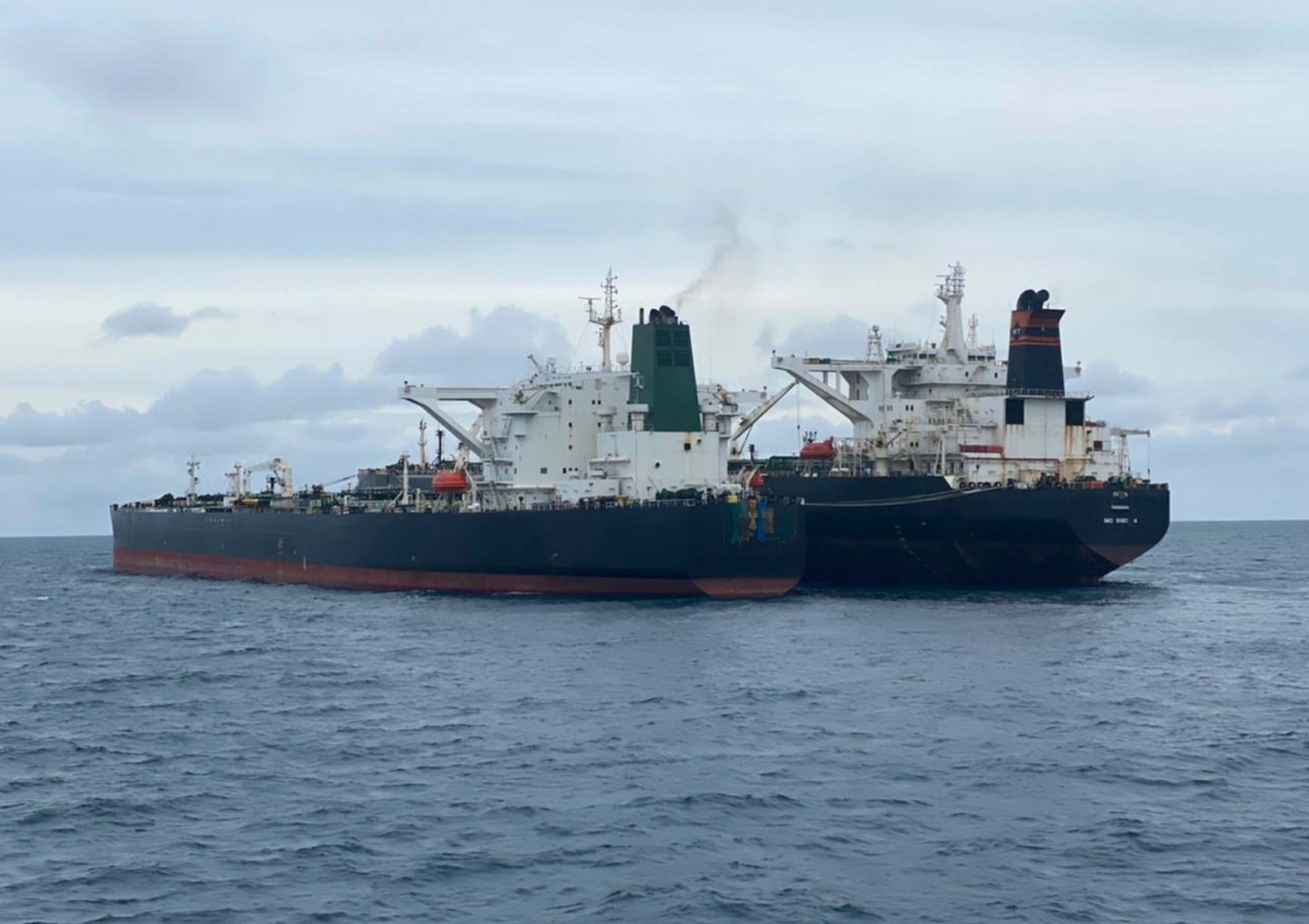Indonesia says it has seized Iranian and Panamanian tankers
Indonesian authorities say they have seized an Iranian tanker and Panamanian tanker suspected of carrying out the illegal transfer of oil in their country’s waters

Your support helps us to tell the story
From reproductive rights to climate change to Big Tech, The Independent is on the ground when the story is developing. Whether it's investigating the financials of Elon Musk's pro-Trump PAC or producing our latest documentary, 'The A Word', which shines a light on the American women fighting for reproductive rights, we know how important it is to parse out the facts from the messaging.
At such a critical moment in US history, we need reporters on the ground. Your donation allows us to keep sending journalists to speak to both sides of the story.
The Independent is trusted by Americans across the entire political spectrum. And unlike many other quality news outlets, we choose not to lock Americans out of our reporting and analysis with paywalls. We believe quality journalism should be available to everyone, paid for by those who can afford it.
Your support makes all the difference.Indonesian authorities said that they seized an Iranian tanker and Panamanian tanker suspected of carrying out the illegal transfer of oil in their country s waters Sunday.
The tankers — the Iranian-flagged MT Horse and the Panamanian-flagged MT Frea — were seized in waters off Indonesia's West Kalimantan province, said Wisnu Pramadita, a spokesman for the Indonesian Maritime Security Agency.
He said the tankers are suspected of a variety of violations, including not displaying national flags, shutting off their identification systems, anchoring illegally as well as the illegal transfer fuel between ships and spilling oil.
Authorities were escorting the two tankers to Batam island in Riau Islands province for further investigation, he said.
Iranian state television acknowledged the tanker’s seizure, citing Indonesian authorities. The report did not elaborate.
Iran, home to major oil and natural gas reserves, has seen its sales abroad deeply impacted by U.S. sanctions after former President Donald Trump unilaterally withdrew America from Tehran’s nuclear deal with world powers in 2018. That cut a crucial source of government revenue in Iran’s long-anemic economy.
In the time since, Iran has relied on black-market sales and deals with Venezuela to keep its sales going.
Iran’s state-owned fleet of oil tankers routinely travel turn off their Automatic Identification System trackers to try and mask where they deliver their cargo. Those AIS beacons, a safety measure so other ships know what’s around them, can be tracked. Analysts say those ships often transfer their oil to other ships, that then sell the crude under false pretenses.